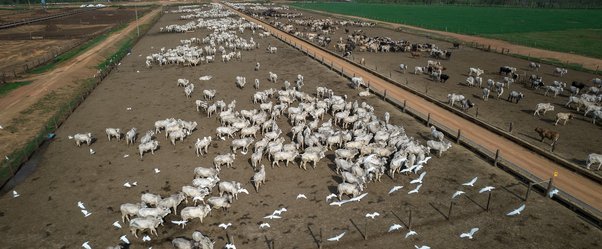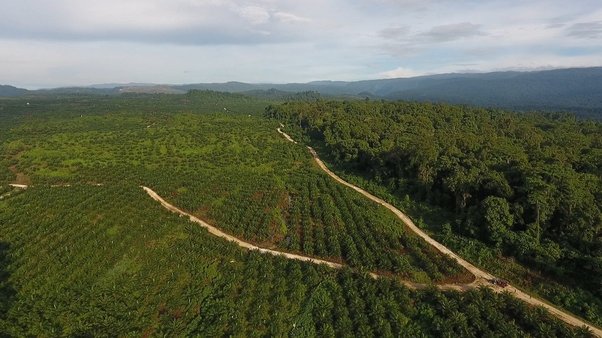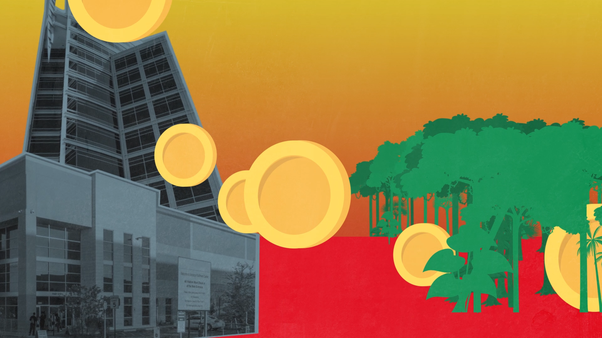Controversial hedge fund tycoon Crispin Odey invested more than US$170m into one of Brazil’s most damaging agribusinesses despite it deforesting large areas and receiving numerous environmental fines
Mr Odey, founder of Mayfair-based Odey Asset Management, is one of the most high profile hedge funders in the UK. In March, the Guardian revealed his company held a “sizeable stake” in the Brazilian firm SLC Agricola. The producer of soy, cotton and corn has cleared at least 30,000 hectares of the Cerrado, a forested savannah region equal in size to Spain, France, Germany, Italy and the UK combined.
The Cerrado is estimated to contain 5% of the world’s species, including 11,000 types of plant, 860 birds and 90 million insect species. Clearing forests in the Cerrado region to make room for crops accounted for a whopping 29% of Brazil’s total carbon emissions between 2003 and 2013.
By any measure, therefore, a company destroying this biome is not one a responsible investor should go near. However, using financial databases kept by Thomson Reuters Eikon, Global Witness, working with not-for-profit analysts Profundo, has discovered Odey invested huge sums in SLC Agricola shares: more than US$130m in July 2018 followed by another US$43m in shares listed on the US stock exchange in February 2019. This meant that as of April 2019, it owned an estimated 14% of the entire company.
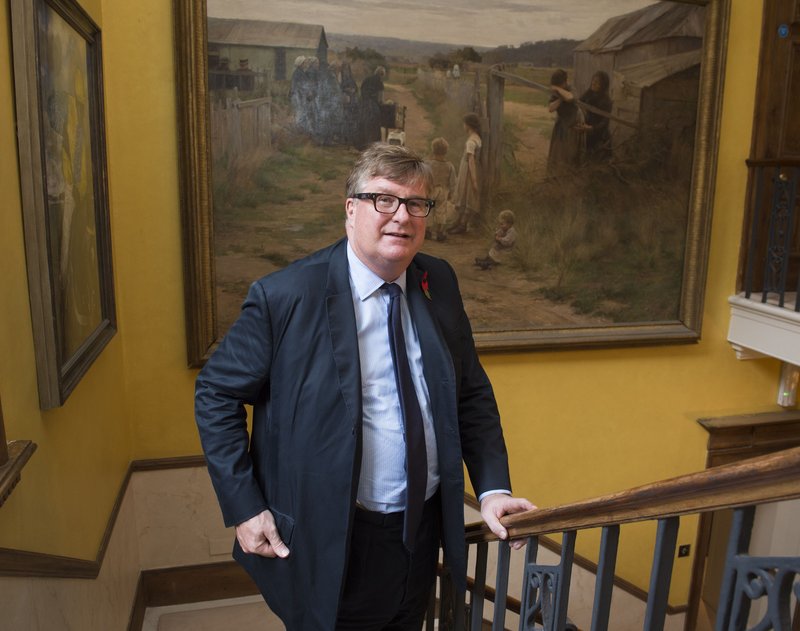
Crispin Odey of Odey Asset Management. Shutterstock
If Odey held the shares throughout 2018, Global Witness has calculated that the investments could have earned the company US$2.2m in dividends that year alone. SLC Agricola has also been repeatedly fined by the Brazilian authorities, Global Witness has learned. Any due diligence on this company would have revealed it wholly unfit for a responsible investment fund to invest a penny in.
That such an iconic investor should so handsomely back a company that has destroyed vast swathes of climate critical forest is emblematic of a wider problem. Global Witness revealed in September that six of the world’s worst deforestation offenders were funded by more than 300 banks and investors to the tune of more than US$44 billion. The UK was the largest international source of credit and investment combined, financing such companies by almost £5 billion.
For years, SLC Agricola’s deforestation of the Cerrado has been documented by Chain Reaction Research – a non-profit sustainability project. Using satellite imagery, it revealed that between 2011 and 2017, SLC Agricola cleared more than 30,000 hectares of Cerrado land, an area the size of the Maldives. Despite the zero-deforestation commitments of several of its buyers and investors, SLC Agricola cleared another 1,355 hectares of Cerrado between March and May 2019. Chain Reaction gave Odey a zero out of 100 score in its assessment of soy financiers’ environmental, social and governance (ESG) policies.
SLC Agricola told Global Witness:
All clearing operations were conducted in compliance with all laws and regulations and the required legal acts issued by competent agencies.
In October 2018, Chain Reaction reported that SLC Agricola had requested environmental licences to clear a further 16,938 hectares of Cerrado forest. Global Witness has now learned that licenses to develop 9,899 hectares of that land have been granted and felling has already begun.
Global Witness can also now reveal Brazilian Federal environment agency Ibama fined SLC Agricola almost $14m Brazilian Reals (£2.4m - based on calculations made using SLC Agricola’s 2007 – 2019 Reference Forms) over a variety of charges between 2007 and 2019, ranging from planting soy in embargoed areas to exploring or damaging native forest without prior approval from the relevant authority. In one case, the forest area allegedly “explored” without permission was 46,860 hectares.
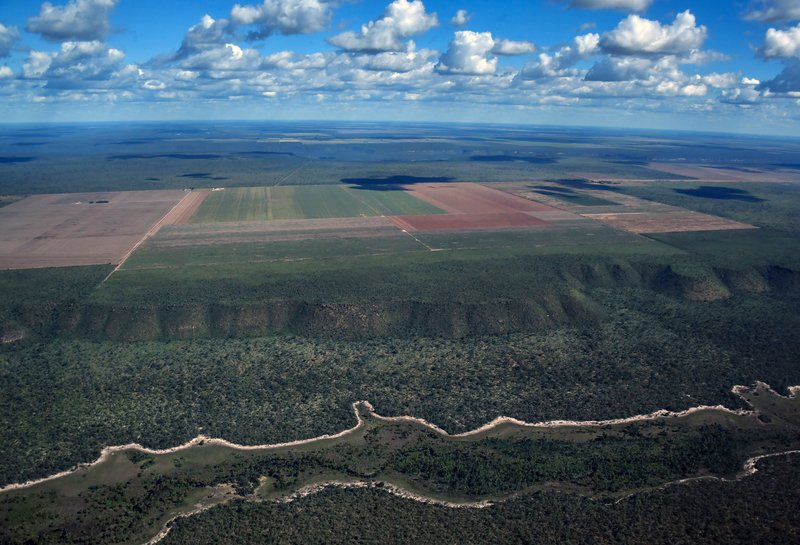
A native Cerrado (savanna) surrounding an agriculture field in Formosa do Rio Preto, western Bahia state. NELSON ALMEIDA/AFP via Getty Images
A SLC spokesman said: “The actions and activities of SLC Agricola have always been guided by the highest standards.
“The fines were appealed in both the administrative and judicial spheres, since the company has solid evidence to show its operations are in full compliance with all laws and regulations.”
It has been impossible to say conclusively how many of these appeals were successful, and despite repeated questioning, SLC Agricola has given no answer to this. But Global Witness’s research suggests while at least one such fine saw a decision in favour of the company, other cases are ongoing.
At least six fines totalling over R$2.6m (almost £500,000) were still being upheld as of December 2018, according to a document published by the company on 31st December 2019 (the sum of the six outstanding fines being appealed as of 31st December 2019, according to the Reference Form). A number of these cases have been mired in Brazil’s notoriously slow justice system for years. The fact SLC Agricola includes possible financial losses for environmental fines in its annual reporting suggests these are just issues the company factors in as the cost of doing business.
The Norwegian Government Pension Fund sold its shares in the company during the last quarter of 2017. Whist it did not specify that environmental concerns were responsible, the ‘Risk-Based Divestments’ section of its 2017 report lists deforestation as its reason for withdrawing from a single Brazilian soy production company. It therefore seems overwhelmingly likely that SLC’s environmental track record was to blame.
An SLC spokesman said: “The inflows and outflows of investment funds are natural in public corporations…it [SLC] has not receive any formal or informal communication on the reasons why the investment fund made the decision.”
This investigation shows that the financial system is failing to self-police its investments and provides concrete evidence for why the government must tackle the role of finance in global deforestation. Investors with an eye only for profit can no longer be allowed to mark their own homework.
As the world grapples with the economic crisis related to the Covid-19 pandemic, it is critical that the UK prioritizes measures to build a more sustainable and resilient economy. This requires financial actors to be accountable for their global environmental footprint and operate in ways that work with communities, not against them.
Financial institutions that take greater heed of social or environmental concerns are also likely to be more resilient in turbulent times.
This would also signal that they are responsive to the realities of the far-reaching social and ecological crises that the world is currently faced with. If the UK is serious about tackling climate change, and creating a more resilient economy, it also needs to address its global environmental footprint – which means tackling the role of UK consumption and financing in driving markets for agricultural commodities like soy, palm oil, beef and rubber driving mass deforestation overseas.
There is no dispute over the lawfulness of the 30,000-plus hectare main tranche of Cerrado deforestation. But legal protections of this region are particularly weak: whilst landowners are required to preserve 80% of forest when operating in the Amazon, the Forest Code dictates only 20-35% of the Cerrado must be preserved. Ultimately, however, it makes no difference to the planet whether the destruction of its forests is lawful. Forests are a crucial carbon store, and the conversion of the Cerrado to farmland between 2003 and 2013 emitted some 870 million tons of CO2. As of December 2019, only 55% of native Cerrado remained.
Mr Odey has been derided as a disaster capitalist for his firm’s activities during the Brexit referendum. He previously made headlines after it was revealed the company reportedly made approximately £220m in profits from the fall in sterling that followed the Brexit referendum in 2016 - despite having purportedly donated almost £900,000 to pro-Brexit groups in the past.
Mr Odey also donated £10,000 to Boris Johnson’s leadership bid in June 2019 followed by another £20,000 gift to the Conservative Party ahead of the December general election. Despite admitting to the BBC that his firm would prosper again in the event of a ‘no deal’ Brexit, Mr Odey denied that any donations were an attempt to influence the Prime Minister in that direction. Approached in March before the coronavirus crisis engulfed Britain, Number 10 made no comment.
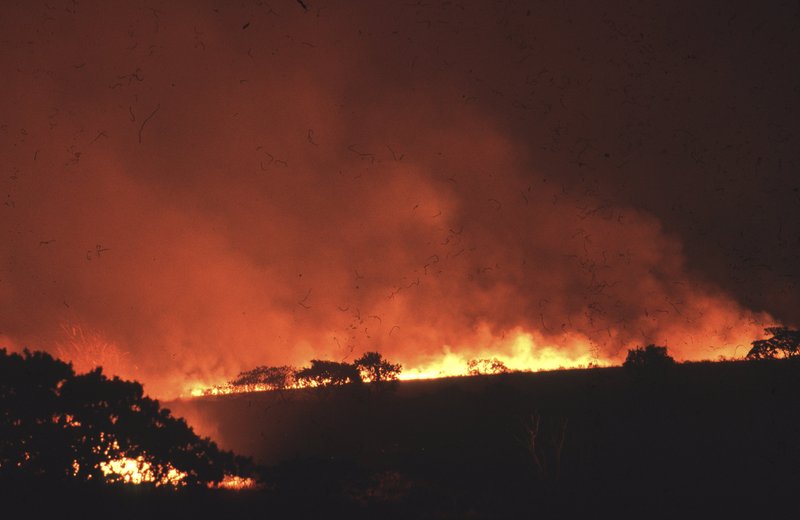
Clearing of Cerrado vegetation of the subtropical savanna biome by burning in Minas Gerais State, Brazil. Jose Caldas/Brazil Photos/LightRocket via Getty Images
As of March 2020, Odey’s holding in SLC Agricola had dropped to 9.69%, still worth more than $94 million. A statement on Odey’s website states that it has a “range of well-established policies” which “reflect our commitment to act ethically and with integrity”. Yet it does not appear to have any specific policies on deforestation or environmental harm. Despite being contacted on numerous occasions, Mr Odey and Odey Asset Management did not respond to requests for comment.
An Odey spokesman told the Guardian: “As active fund managers, we seek to invest in companies that we determine have a promising future, and one of the inputs to that evaluation is how those companies are using or adopting sustainable practices.
“Brazil has formed a vital part of increased global agricultural output, that has allowed food to be cheaper in real terms than ever before, and enabled a growing global population to feed and clothe itself.
“SLC Agricola is a good corporate citizen that abides by relevant legislation and adopts the most modern agricultural technology to maximise yield and use land efficiently.”
Banner image credit: NELSON ALMEIDA/AFP via Getty Images
Download the full report
Download Resource